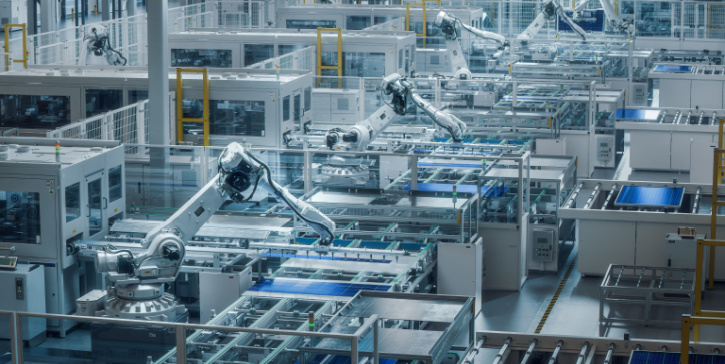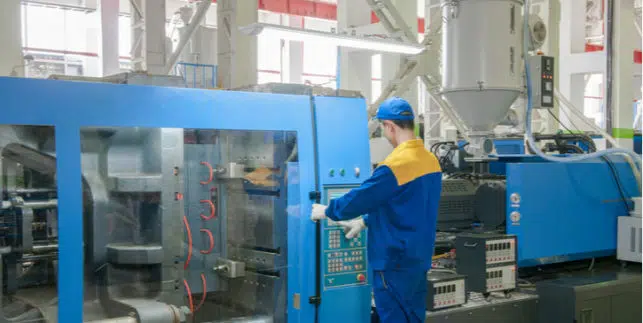Industrial Automation: Embracing the Future of Industry 5.0

The industrial landscape has been in a state of constant evolution since the first Industrial Revolution, marked by continuous innovation and technological advancements. Each phase has redefined manufacturing in its own right, leading us to the era of Industry 4.0 which has been characterized by seamless integration of smart technologies and industrial automation systems. On this digital foundation, we now transition to the next evolutionary phase, Industry 5.0, which heralds a new era of manufacturing automation focused on the synergy of human creativity and machine efficiency.
In this new era, digital platforms like Matics are playing a crucial role in empowering production teams to make smarter decisions in real-time. Automation is a key part of this process, enabling manufacturers to streamline their production processes, reduce errors, and improve quality control. By integrating automation technologies with real-time data analytics, digital platforms help manufacturers identify bottlenecks, predict maintenance needs, and make data-driven decisions that improve overall equipment effectiveness (OEE) and reduce downtime.
What is Industrial Automation?
Industrial automation refers to the use of control systems, such as computers or robots, and information technologies, for handling different processes. The main aim of industrial automation is to boost efficiency, reliability, and robustness while reducing errors and production time, resulting in increased productivity and quality.
Types of Industrial Automation Systems
- Fixed Automation Systems – Fixed automation systems are designed to perform fixed and repetitive tasks. These systems are typically used for high-volume production.
- Programmable Automation Systems – In programmable automation systems, the production equipment is designed with the capability to change the sequence of operations to accommodate different product configurations.
Flexible Automation Systems – Flexible automation systems are an extension of programmable automation that is capable of producing a variety of products with minimal time loss for changeovers. These machine automation systems are used where product variety is high and volumes are relatively low.
Staying Ahead with Industrial Automation
Efficiency, innovation, and agility are the cornerstones of industrial success. As a result, this latest evolution of industrial automation emerges as a critical catalyst. By integrating automation technologies, manufacturing plants can enhance productivity and quality and transform them into substantial cost savings and improved worker safety. Automation in industrial plants also has the power to streamline processes and reduce human error, resulting in consistent high-quality outputs which optimize productivity, efficiency and competitive advantage.
The adoption of automated industry solutions equips plants with the flexibility needed to adapt to changing market demands rapidly. It also fosters a safer work environment by assigning hazardous tasks to machines. In essence, embracing industrial automation is not just an option but a necessity for plants aiming to thrive in today’s fast-paced, technology-driven industrial landscape. The shift towards automation is a strategic move that future-proofs operations, ensuring resilience, scalability, and long-term sustainability
Key Benefits of Industrial Automation for Manufacturers
The industrial manufacturing landscape is being transformed by a multitude of benefits that come with the integration of industrial automation solutions.
Elevating Productivity to New Heights
Automation isn’t just about doing things faster; it’s about redefining the efficiency paradigm. Through the integration of advanced systems and automation technologies, manufacturers are able to achieve higher output rates with greater precision, reducing the time and resources spent on each production cycle. Alongside this, there’s a notable reduction in operational costs and errors. Automated processes minimize the scope for human error, leading to more consistent and reliable production outcomes. This reliability, in turn, translates into cost savings, as there is less wastage of materials and a reduced need for rework.
Agility and Flexibility: The New Manufacturing Mantra
In the ever-evolving landscape of manufacturing, automation is a game-changer. It empowers manufacturers with unprecedented flexibility, allowing them to swiftly adapt to market fluctuations and evolving customer demands. The ability to reconfigure production lines and processes with agility is not just a benefit but a necessity in the dynamic marketplace of today. Changing market demands or customer requirements requires manufacturers to be agile, or risk losing customers and market position, making adaptability crucial in today’s fast-paced business environment.
Unlocking Automation’s Full Spectrum with Digital Integration
To harness the full spectrum of industrial automation’s capabilities, embracing digitalization is key. This involves deploying advanced digital solutions that not only gather and amalgamate data from diverse sources but also analyze it to yield actionable insights. It’s this integration of data and insights that truly unlocks the transformative power of industrial automation, paving the way for smarter, more efficient, and more responsive manufacturing environments
The Challenges of Industrial Automation Adoption:
While the potential of industrial automation is vast, its adoption is not without challenges. One of the main hurdles in the Automation Industry involves integrating Industrial Automation Systems within existing infrastructures, often requiring significant overhauls and investments. This challenge is compounded when dealing with legacy systems that are not readily compatible with modern automation technologies. Additionally, sourcing from Industrial Automation Suppliers can be complex, as it demands a thorough understanding of the specific needs of a business and the technical capabilities of different solutions.
Another significant challenge is the need for skilled personnel who can effectively implement and manage these sophisticated systems. This skills gap often requires additional training and investment, further complicating the transition to automated processes. Despite these challenges, the shift towards automation remains a strategic priority for many industries, promising long-term gains in efficiency, productivity, profitability and competitiveness

Changing the way people work in factories
Request a DemoThe Future of Industrial Automation
As we move into Industry 5.0, the future of industrial automation is set to be shaped by a blend of human creativity and technological innovation. The future of manufacturing automation systems will see an increased focus on human-machine collaboration, with automation systems designed to augment and enhance human capabilities rather than replace them outright. This will lead to the emergence of new automation types that are more flexible, adaptable, and responsive to changing needs.
Digital platforms like Matics are set to revolutionize manufacturing by empowering production teams to make smarter decisions in real-time. By integrating industrial automation with data analytics, these platforms optimize operations, improve efficiency, and drive innovation.
As we embrace this new phase, it is crucial for manufacturers and stakeholders to recognize that the future of the industry lies in this harmonious integration, where the potential of automation is fully realized, not just in elevating productivity but in reshaping the very essence of manufacturing for a smarter, more sustainable world.
Contact Matics today to discover how you can harness the power of real-time data and industrial automation to propel your manufacturing plant forward.




